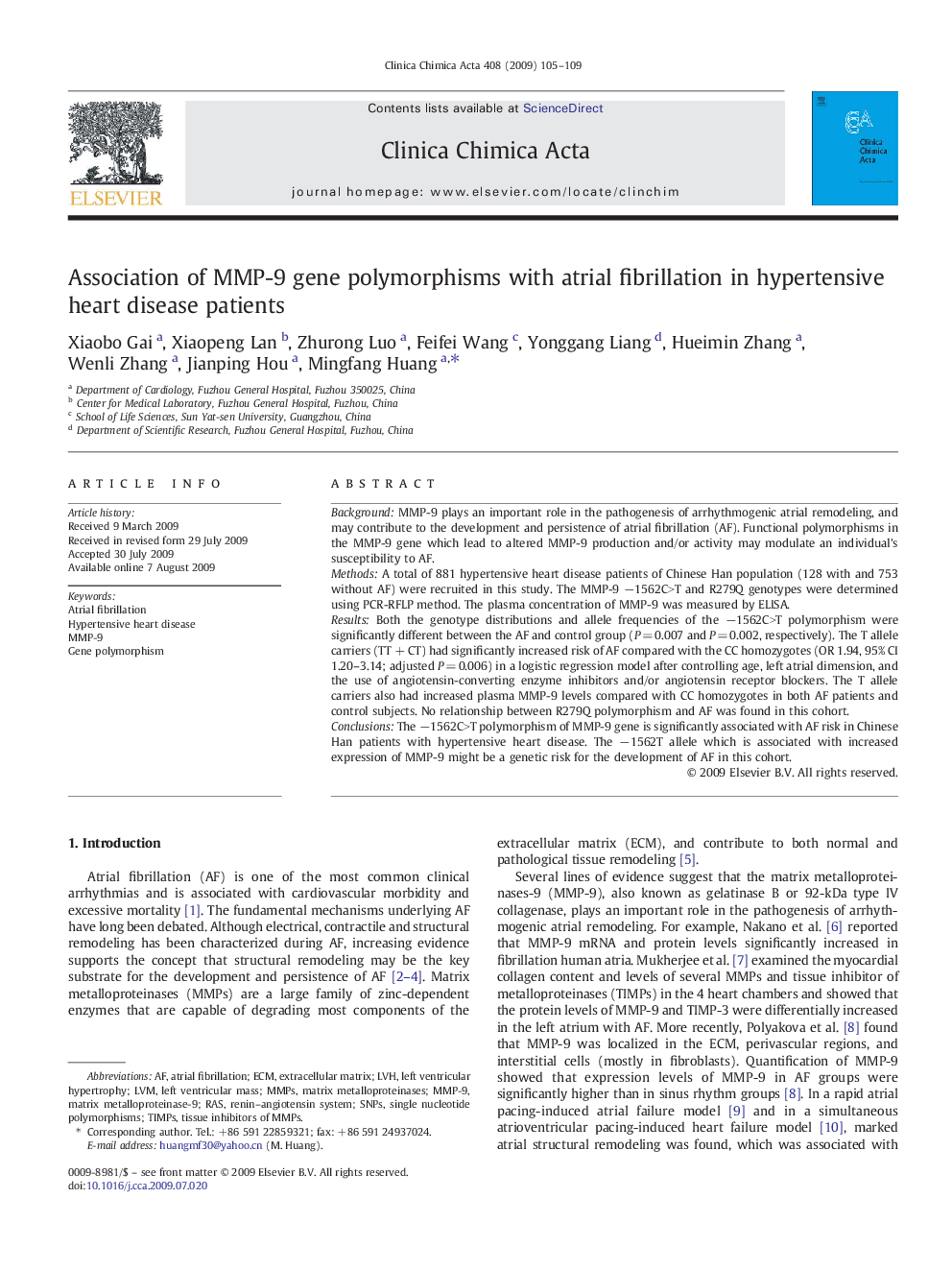| Article ID | Journal | Published Year | Pages | File Type |
|---|---|---|---|---|
| 1966503 | Clinica Chimica Acta | 2009 | 5 Pages |
BackgroundMMP-9 plays an important role in the pathogenesis of arrhythmogenic atrial remodeling, and may contribute to the development and persistence of atrial fibrillation (AF). Functional polymorphisms in the MMP-9 gene which lead to altered MMP-9 production and/or activity may modulate an individual's susceptibility to AF.MethodsA total of 881 hypertensive heart disease patients of Chinese Han population (128 with and 753 without AF) were recruited in this study. The MMP-9 −1562C>T and R279Q genotypes were determined using PCR-RFLP method. The plasma concentration of MMP-9 was measured by ELISA.ResultsBoth the genotype distributions and allele frequencies of the −1562C>T polymorphism were significantly different between the AF and control group (P = 0.007 and P = 0.002, respectively). The T allele carriers (TT + CT) had significantly increased risk of AF compared with the CC homozygotes (OR 1.94, 95% CI 1.20–3.14; adjusted P = 0.006) in a logistic regression model after controlling age, left atrial dimension, and the use of angiotensin-converting enzyme inhibitors and/or angiotensin receptor blockers. The T allele carriers also had increased plasma MMP-9 levels compared with CC homozygotes in both AF patients and control subjects. No relationship between R279Q polymorphism and AF was found in this cohort.ConclusionsThe −1562C>T polymorphism of MMP-9 gene is significantly associated with AF risk in Chinese Han patients with hypertensive heart disease. The −1562T allele which is associated with increased expression of MMP-9 might be a genetic risk for the development of AF in this cohort.
